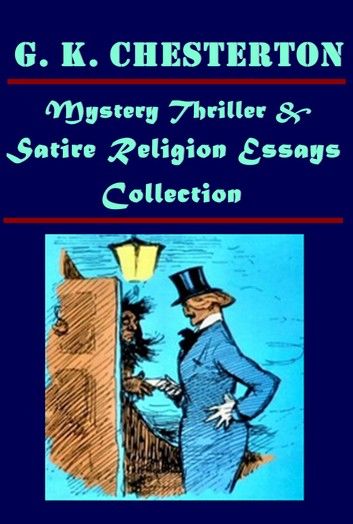Better known as G.K. Chesterton was an English writer. He wrote on philosophy, ontology, poetry, plays, journalism, public lectures and debates, literary and art criticism, biography, Christian apologetics, and fiction, including fantasy and detective fiction. Chesterton is often referred to as the "prince of paradox". Time magazine, in a review of a biography of Chesterton, observed of his writing style: "Whenever possible Chesterton made his points with popular sayings, proverbs, allegories—first carefully turning them inside out." Chesterton is well known for his reasoned apologetics, and even some of those who disagree with him have recognized the universal appeal of such works as Orthodoxy and The Everlasting Man.
Contents
The Man Who Was Thursday, A Nightmare
What's Wrong With The World
Heretics
Tremendous Trifles
All Things Considered
The Man Who Knew Too Much
The Club of Queer Trades
The Ballad of the White Horse
What I Saw in America
The Napoleon of Notting Hill
A Short History of England
The Ball and The Cross
Manalive
Utopia of Usurers and other Essays
Eugenics and Other Evils
The Trees of Pride
Orthodoxy
The Defendant
The Victorian Age in Literature
Magic
Poems
Appreciations and Criticisms of the Works of Charles Dickens
A Miscellany of Men
Twelve Types
George Bernard Shaw
Alarms and Discursions
The New Jerusalem
The Crimes of England
Robert Browning
Wine, Water, and Song
The Barbarism of Berlin
Varied Types
A Chesterton Calendar
Lord Kitchener
The Appetite of Tyranny: Including Letters to an Old Garibaldian
The Wild Knight and Other Poems












